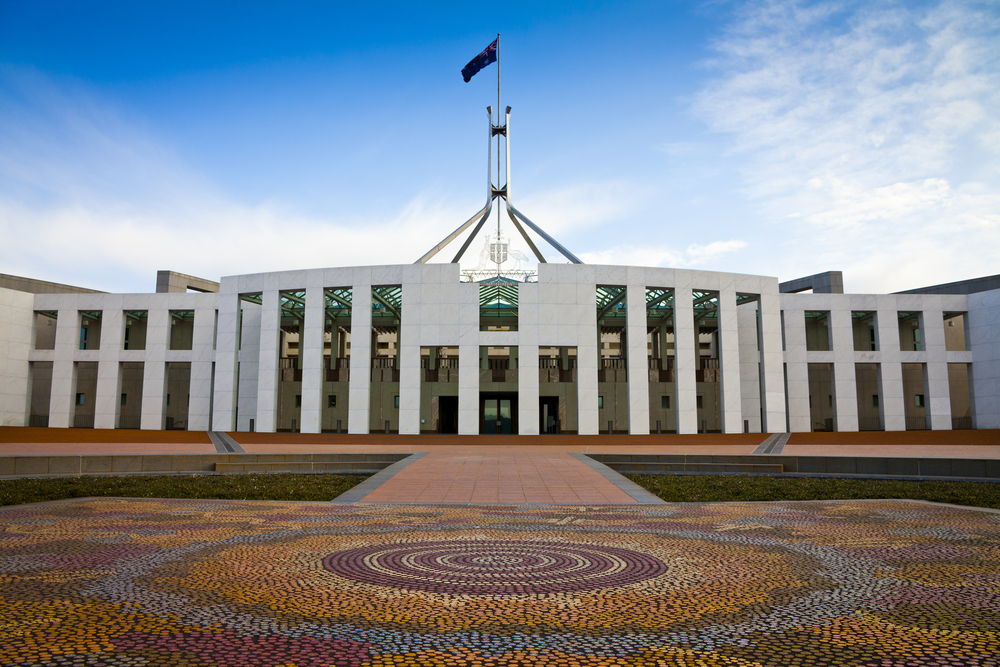With last week’s cabinet reshuffle, the Morrison Government was hoping to reset, recasting its blokey, accident-prone blundering about the safety and security of women inside and outside Parliament while wresting an out-of-control agenda back onto familiar territory -‘business as usual’. Troubled by years of spin and little progress, many women, men, trans and non-binary Australians maintain a watching brief as they continue to assess whether the work of government represents more than just a reshuffle. They long for a major reorientation or, as the Prime Minister described it, a new lens being placed on the project of governing Australia?
Yet switching two senior ministers to new roles within the Cabinet is an early sign that there are certain things that the Prime Minister still doesn’t get. The most glaring centred on the trigger for reshuffle in the first place, the Prime Minister’s management of the former Attorney General’s conflict of interest in the wake of defamation proceedings Christian Porter initiated in the Federal Court against the ABC. This was the red alert for the PM to seek advice from the Solicitor General about the possible conflicts of interest involved. Until then he had been unmoved to act on the original and ongoing allegation about Porter’s fitness to continue as an Attorney General with a serious criminal allegation raised against him, albeit vehemently denied by Porter.

With Porter’s defamation action now in open court, the public can keep a check on the progress of the civil, not criminal, case weighing defamation concepts of ‘public interest’ and ‘truth’. The litigation in a court system administered by the Attorney General speak directly to why Porter’s continued role as AG did not sit well with Ministerial responsibility. So, moving him away from that role is a positive step for responsible government.
But under the principle of collective Ministerial responsibility there remains an ongoing question of whether Porter should remain part of the Cabinet, even in his new role as Minister for Industry, Science and Technology.
… all Ministers must be prepared to accept collective responsibility for, and defend publicly, the policies and actions of the Government.
As the Cabinet handbook explains, Cabinet is collectively responsible to the people, through the Parliament, for determining and implementing policies for national government. Broadly, it is required by convention that all Ministers must be prepared to accept collective responsibility for, and defend publicly, the policies and actions of the Government. The Cabinet Handbook further states ‘All Ministers are expected to give their support in public debate to decisions of the Government.’ It is why the Freedom of Information Act exempts from public release Cabinet documents as a way of protecting this principle. It is said to ensure full and frank discussion in the Cabinet about all matters of public policy to ensure the ‘best’ decision is made. This means that whether or not Porter recuses himself from decisions impacting on his current defamation proceedings, he will continue to be responsible for all decisions made by the Cabinet. This also includes decisions made about defamation law reform. Christian Porter is on record for identifying the need for reform. While Michaelia Cash and Amanda Stoker may go to the meetings with the State Attorneys General about this reform, they will take any decisions about defamation law reform back to Cabinet, a Cabinet in which Porter is still collectively responsible. Ministerial accountability has not been fully protected with the decision to keep Porter within the Ministry.
… the culture in Parliament house reflects a brazen inequality of men and women
Porter’s conflict of interest may have triggered an aspect of the reshuffle. Though separate, his predicament is also linked atmospherically to further major changes to the Ministry that are tied to the seismic shifts in the consciousness of the government following the March4Justice movement. The Australia-wide march erupted organically in the wake of the Brittany Higgins case (itself influenced by Grace Tame’s award of Australian of the Year) and the greater public’s attention to the culture in Parliament house that reflects a brazen inequality of men and women, not only in numbers, but also in process and culture. Changing the numbers is one way to start that process of change, and the reshuffle makes inroads here with Michaelia Cash now the country’s second female Attorney-General, and Karen Andrews the new Minister for Home Affairs (the first woman in that specific role, although women preceded her in Immigration) and Melissa Price elevated to Cabinet with the role of Minister for Defence Industry. With Marise Payne, Sussan Ley, Anne Ruston, Linda Reynolds there will now be 7 women and 18 men in Cabinet (28%), and in the total Ministry, 38 men and 12 women (24%). While this is an improvement on earlier numbers, it remains the best the Government can do in the wake of six weeks of relentless scandal and re-education acting on the consciousness of the men in the charge. Twenty eight percent and 24% is nowhere near 50% women.
The unequal numbers speak to the need for more profound changes in the make-up of cabinets, Parliament, and the Parliamentary precinct as the minimum requirement for ensuring equality is embedded as a norm of our system of representative democracy.
The Prime Minister also created a new Cabinet task force to manage women’s equality, women’s safety, women’s economic security, women’s health and well-being. The task force is to be co-chaired by the Prime Minister and Minister Payne and includes all female members of the government’s Ministry (12 women) as well as the central agencies of Treasury and Finance. This is an important development. All of the identified issues are complex, and must recognise the importance of further disaggregating ‘women’ and non-binary people’s needs around race, class, sexuality, and other forms of difference that impact on their experience of equality, safety, economic security and health and well-being. The task force must be attentive to the differing needs of over 50% of the population as a standard and central to all government policy.
How might that be embedded as a norm in Cabinet? Back in December of 2020, after the first ABC story Inside the Canberra Bubble was aired, Queensland Senator Amanda Stoker was appointed Assistant Attorney General to assist with the Sex Discrimination Act and other areas of the portfolio. Senator Stoker continues in that Assistant role now with her new Attorney General (no doubt with a new division of responsibilities), and she also is Assistant Minister for Industrial Relations and Assistant Minister for Women. Throughout the Cabinet there are various Assistant Ministers who represent the extensive work each Ministry covers, in addition, of course, to their foundational work as a representative of an electorate or a State for which each member is responsible.
It is constitutionally possible, and indeed it would be a step worth considering, to embed gender equality by building into the Cabinet that each Minister (whether a member of Cabinet or the outer Ministry) have a shared Ministerial role with a man/women/non-binary mix for every portfolio to ensure that the lens of life experience be embedded in the portfolio itself, not only through the Minister’s own lived experiences but also in ensuring that other experiences are seen as important. Given the principle of collective responsibility, a guaranteed 50% membership of cabinet of women would be a reminder to the whole Cabinet room of the responsibility to take into account the life experience of the Australian community – to be representatives for all – or as the Prime Minister himself said “to work hard for every single Australian, be they men or women, be they Indigenous or non-Indigenous, be they able bodied or living with a disability, whether they be a senior or they be a youth.” To do that honestly involves not only hearing what they have to say but institutionally absorbing those lived experiences into policy.
Indeed, if this had been the case back at the beginning of the Morrison ministry, then would the result of 9 men (and no women) being appointed to the Melbourne registry of the Federal Court since the Morrison government came to power have occurred? The concept of women’s equal participation in governing includes all arms of our system of representative democracy; our legislatures, our executive and our judiciary. Finally, to ensure this becomes a norm of our society, more changes are needed, in addition to and beyond the numbers. We need to challenge gender norms throughout society – including norms of men’s roles in the home, around caring roles as parents and more broadly in industries that are currently feminised, ensuring all industries are more gender equal. We need to review economic structures to determine whether they bake in existing gender roles, including the primary and secondary carer in the home. All areas need attention to ensure gender equality is reinforced in all aspects of everyone’s lives.
The Ministerial shuffle has added a few more women in the mix, and provided a focussed task force around gender equality. To ensure this marks the beginning of an embedded notion of collective Ministerial responsibility, not only at times of crisis, but at all times, we need Ministers who have the capacity to measure whether the policy decisions they make around the cabinet table, then implement through legislation, regulations and public policy broadly, and later interpreted by the Courts, ensure all Australians are accounted for and truly represented. It is only when that happens that we can be sure we are truly working towards a community where men and women and nonbinary and trans Australians feel confident that we are equally sharing the caring loads (both at home and in the public worlds), sharing the benefits (within our economic structures at home and in the public sphere) and sharing the power, in a personal and political manner.
Professor Kim Rubenstein, Co-Director, 50/50 by 2030 Foundation, Faculty of Business Government and Law, University of Canberra. This article was also published in The Canberra Times, Public Informant, 6 April 2021
Kim Rubenstein is a Professor in the Faculty of Business Government and Law at the University of Canberra, which has supported the production of the new podcast series It’s not just the vibe, It’s the Constitution. She is a Fellow of the Australian Academy of Law and the Academy of Social Sciences in Australia.





